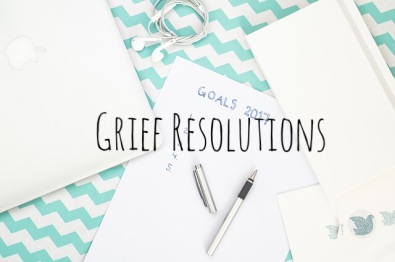 The New Year often symbolizes a new beginning, but for those of us who are grieving the new year can represent yet another long year without our loved one.
The New Year often symbolizes a new beginning, but for those of us who are grieving the new year can represent yet another long year without our loved one.
New Years Eve was never really a big deal to me. I would go out with friends but at midnight for as far back as I can remember, regardless of how old I was, I would receive at text from my Dad that said, “Happy New Year honey, we love you.”
2017 was different, my father died January 17, 2016. At midnight the following New Year there was no text from Dad. The text I took for granted for so long was now just a fond memory. The last day of that year meant entering a year that my father would never see. A heartbreaking year of watching my mother learn how to live without her soulmate. A year of being fatherless, wondering if this new gaping hole in my heart would ever stop hurting. A year of so many tears that I was positive my eyes would dry out.
2017 was a beautiful, messy, chaotic year combined with overwhelming sadness and extreme happiness.
I married the last love of my life without the first love of my life there. I survived the trials and tribulations life so often throws into our paths without my father, the man I went to for everything. I’m learning that if I can survive my wedding day without my father by my side I don’t really care who does or doesn’t like me. I can’t be everyone’s cup of coffee and that’s okay.
I am not a big fan of new year resolutions. It’s my opinion that they can be a tremendous disappointment if and when we fail to stick to them. If you can be a better version of yourself right now why wait until the first of the year to do it? Who doesn’t want to be a healthier, happier, more efficient version of themselves?
But what if we made a grief resolution? What if we give a voice to our grief journey so that we may begin to heal?
We all grieve, but we all grieve differently. It doesn’t matter if you lost your loved one this year or years ago, it is essential to remember that where there is great love, there is great grief.
Below are some grief resolutions I came up with and I hope they will help you as we embark on this new year together.
- Say their name, scream their name from the rooftops if you must. But never stop saying their name.
- Be open to happiness – finding joy in life does not mean you are forgetting your loved one, it means you are honoring the life they lived and the role they played in your life.
- Be honest about how your feel with yourself and others – if you are upset or something triggers your grief let friends know.
- Practice self care daily – even if this is just a ten minute walk around the block, self care is the key to healing.
- Spend more time with family and friends.
- Create new traditions honoring your loved one.
- Keep your distance from toxic mean spirited people, they only steal your sunshine and hinder your healing.
- Stop saying “I’m fine” if it’s not true.
- Volunteer with an organization or cause that your loved one believed in.
- Seek grief counseling if needed.
“We all yearn for what we have lost. But sometimes, we forget what we have.” Mitch Albom
Like what you just read and want more?
Take a moment to click here and like my Facebook page!





 You have not felt a broken heart until you have heard your larger than life heroic father scream in pain.
You have not felt a broken heart until you have heard your larger than life heroic father scream in pain. 



